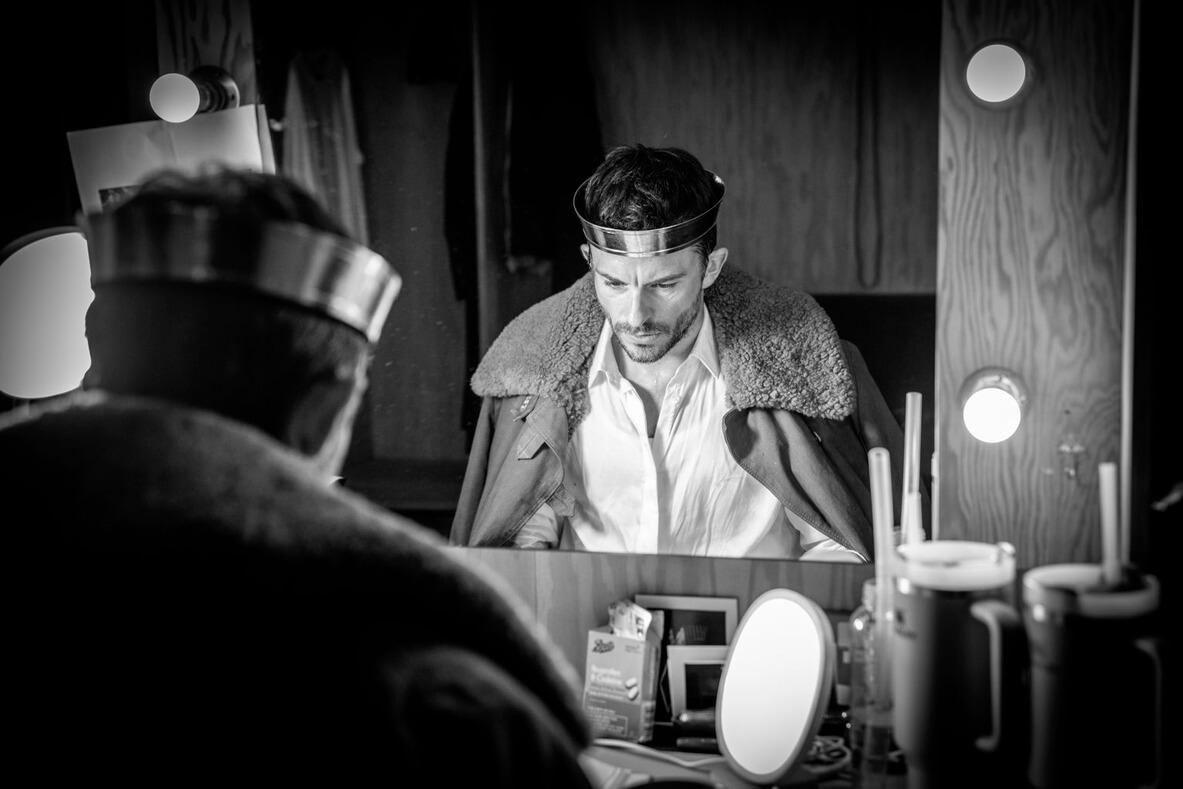Writing team Todd and Victoria Buchholz must have been thrilled to have stumbled across the Bartali story, for it contains everything which the combined talents of a published economics academic and a law graduate, could possibly wish for. However, there is a sobering lesson to be learned here, which is that simply regurgitating events and details extracted from meticulous research, alone won’t be enough to create an entertaining and awe inspiring musical, (despite the incorporation of musical nods to Evita, Matador and even Les Miserable). On press night’s showing, the lyrics (bland and hackneyed by turns) needed considerable work and the music felt continuously as though it was going to go somewhere and then doubted itself. This resulted in a show without a memorable tune or hummable refrain. Counterintuitively, it was the overuse of technically well-structured harmony lines which reinforced the problem.
The year is 1943 and our hero, born to a poor Italian quarryman, falls-in with Mussolini’s black shirts in a bid to help progress his dream of achieving cycling glory. His natural talent and determination soon means he earns the sobriquet King of the Mountains winning the Tour De France and a nod of approval from Il Duce, but his distaste for fascism is impossible to disguise. His trusty childhood friend Mario Carità (Fed Zanni) who possesses no obvious talents (save a patriotic fervour and an ability to kill) goes off to war. When their paths cross again they are changed by their experiences but fall for the same woman Adriana Bani (Amy Di Bartolomeo). Meanwhile, the resistance in the form of Cardinal Elia Della Costa (Niall Sheehy who struggled vocally) is trying to get Jewish children to safety by shielding them in Catholic Churches throughout Tuscany. Our secondary-hero recruits Bartali — initially as a distraction to be deployed during various exercises and the churchman is helped in these efforts by a lowly number cruncher Nico Nissim (Daniel Robinson). Robinson makes a showy, crowd-pleasing stab at amusing characterisation on every occasion he appears, offering some much needed levity as a result (albeit at the hammy end of the spectrum).
Kelly Devine’s direction-by-numbers was not helped by an unimaginative flat-packed set design which wouldn’t have looked out of place in the 1970s (or indeed, a regional panto today). The cast in general try their best to make the material feel substantial, but even those songs which initially hint at potential (like the playful Green Eye Shades) lose their courage and evaporate.
This reviewer was left wondering what the result would have been if the Buchholz partnership had trusted their story to an experienced and talented song-writing team rather than undertaking the task themselves. It’s not too late… maybe worth swallowing some pride and picking up the phone. There are some amazing theatre-writing talents out there, not least in NYC and London.

 Glory Ride - Fed Zanni as Mario Carita and the Company - Photographer Marc Brenner
Glory Ride - Fed Zanni as Mario Carita and the Company - Photographer Marc Brenner

